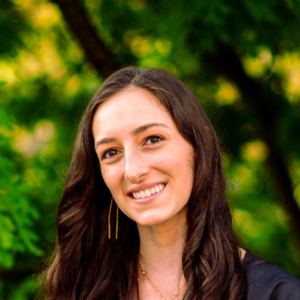Via LSC Blog
By Caroline Hatley ’24
At HLS, and at many other law schools across the country, law students spend the bulk of our time in the classroom learning legal doctrine by dissecting federal (mostly appellate) judicial opinions. In the rare event a class focuses much attention on legal strategy, the spotlight is usually on topics like pre-trial litigation, client selection, and the social and political movements that have preceded major legal shifts in the Supreme Court. I found my experience in the LGBTQ+ Advocacy Clinic so valuable in large part because it gave me a fuller view of movement lawyering both in the post-settlement phase of litigation and even where litigation isn’t an option.

At the beginning of the semester, my clinical partner, Simone Unwalla, and I were assigned to two matters. The first was a lawsuit focused on housing discrimination in the New York City shelter system that settled in 2021, and the second was a policy project designed to combat the use of far-right online forums to organize online harassment campaigns against LGBTQ+ activists and allies.
In our litigation project, Simone and I met each week with Professor Chen and a small team from the Center for Constitutional Rights (CCR) that served as co-counsel in Lopez v. NYC Department of Homeless Services. We quickly learned that a settlement, especially one that provides for the kind of far-reaching reforms won in Lopez, doesn’t mark the end of litigation efforts. In the post-settlement phase, we did a lot of research into questions of New York state law, public policy, and even 14th Amendment jurisprudence that could become relevant in enforcing the settlement. These abstract questions were grounded by reports we received and reviewed throughout the semester detailing the city’s ongoing efforts (or lack thereof) to comply with its obligations under the agreement.
In this process, we learned a lot of legal doctrine, but for me, the most valuable part of the experience was seeing how all the moving parts of this kind of litigation work together; our legal research, their factual investigations, informal negotiations with city employees, and communication with our client all affected the team’s legal goals. Our weekly meetings provided another important benefit; when the team discussed and occasionally disagreed on issues of strategy, hearing their differing opinions, rooted in years of experience with civil rights litigation, helped me understand many of the subtle, practical factors that influence legal decision-making. Student attorneys were encouraged to offer our own ideas in these discussions, and, although listening alone was a valuable educational experience, engagement with and feedback on our ideas and research helped develop my public speaking, writing, and legal strategy skills.
As in our litigation project, opportunities to learn from experts in and outside of HLS were some of the most valuable experiences provided by the clinic. Simone and I spent much of the second half of the semester reaching out to and scheduling meetings with online safety experts working in reproductive justice, anti-racism, and data privacy spaces. From these conversations, we understood that the legal remedies to the kind of harms we were addressing were mostly reactive, and that preventative remedies, while effective, were time-intensive, expensive, and often re-traumatizing for victims. Instead, we hoped to find creative ways to help prevent people from being targeted and to minimize the damage these attacks could cause. Furthermore, in the course of our discussions with Andy, a major focus of the project became taking the burden off victims by enabling large organizations and workplaces to take some responsibility for both preventative and reactive safety measures. Over the summer of 2023, Andy used the materials and outlines Simone and I prepared during the semester to write, develop, and publish the toolkit, and it is now available for distribution under the name “Protect Your People.”
In both projects, clinic staff and our external partners fostered a sense of ownership and leadership in us as student attorneys. In Lopez, this value was realized when the team used our research to shape their legal strategy, pushing us to make our own judgment calls where the law was uncertain and taking our recommendations seriously. In our policy project, Simone and I played an active role in determining the direction and scope of the toolkit, and the flexibility provided by the project allowed us to identify new areas of importance as the semester went on. This practical experience developing and leading a project is exactly what I hoped to get from my clinical experience, and the clinic remains one of my favorite things I’ve done at HLS.
Filed in: Clinical Student Voices
Contact Office of Clinical and Pro Bono Programs
Website:
hls.harvard.edu/clinics
Email:
clinical@law.harvard.edu